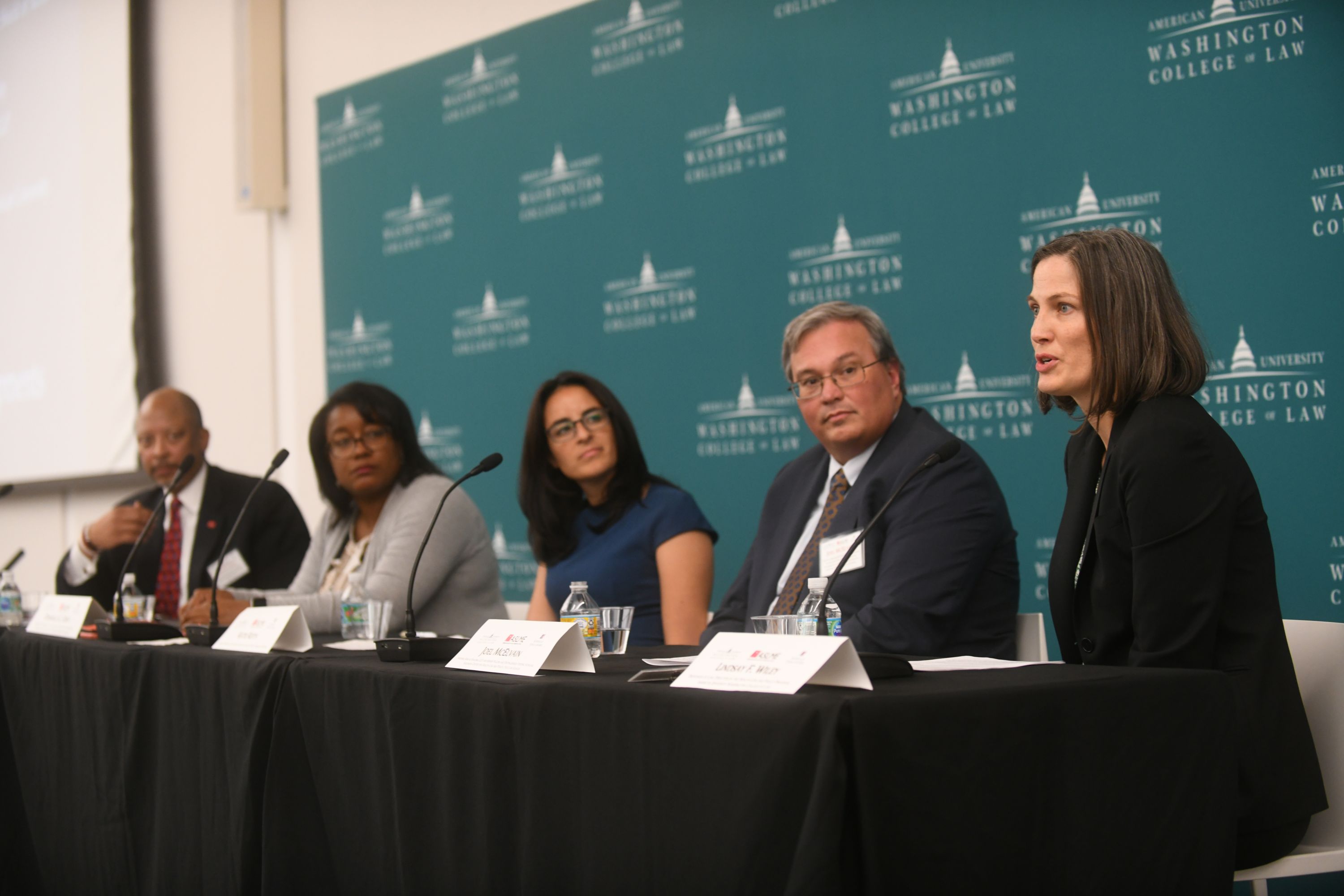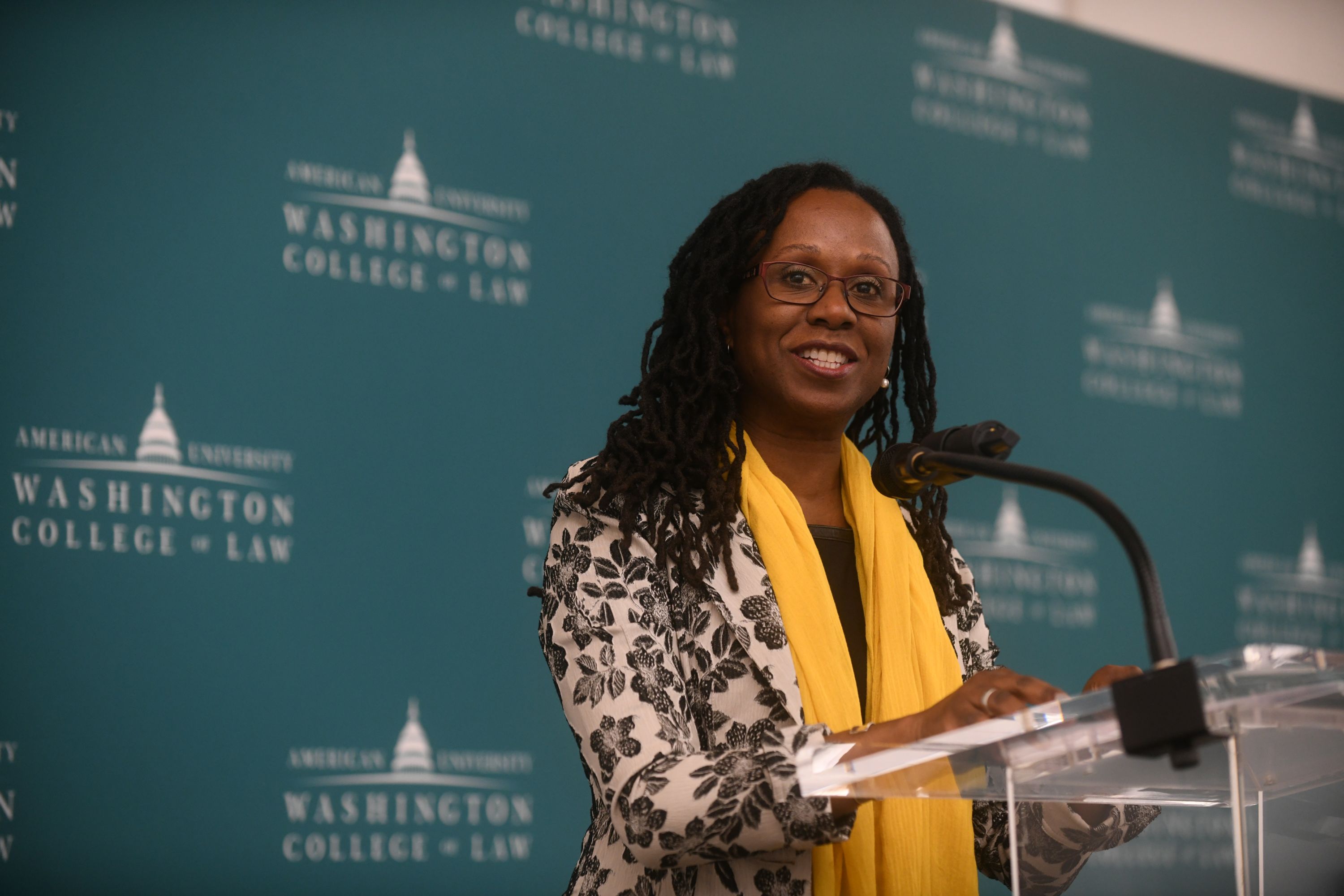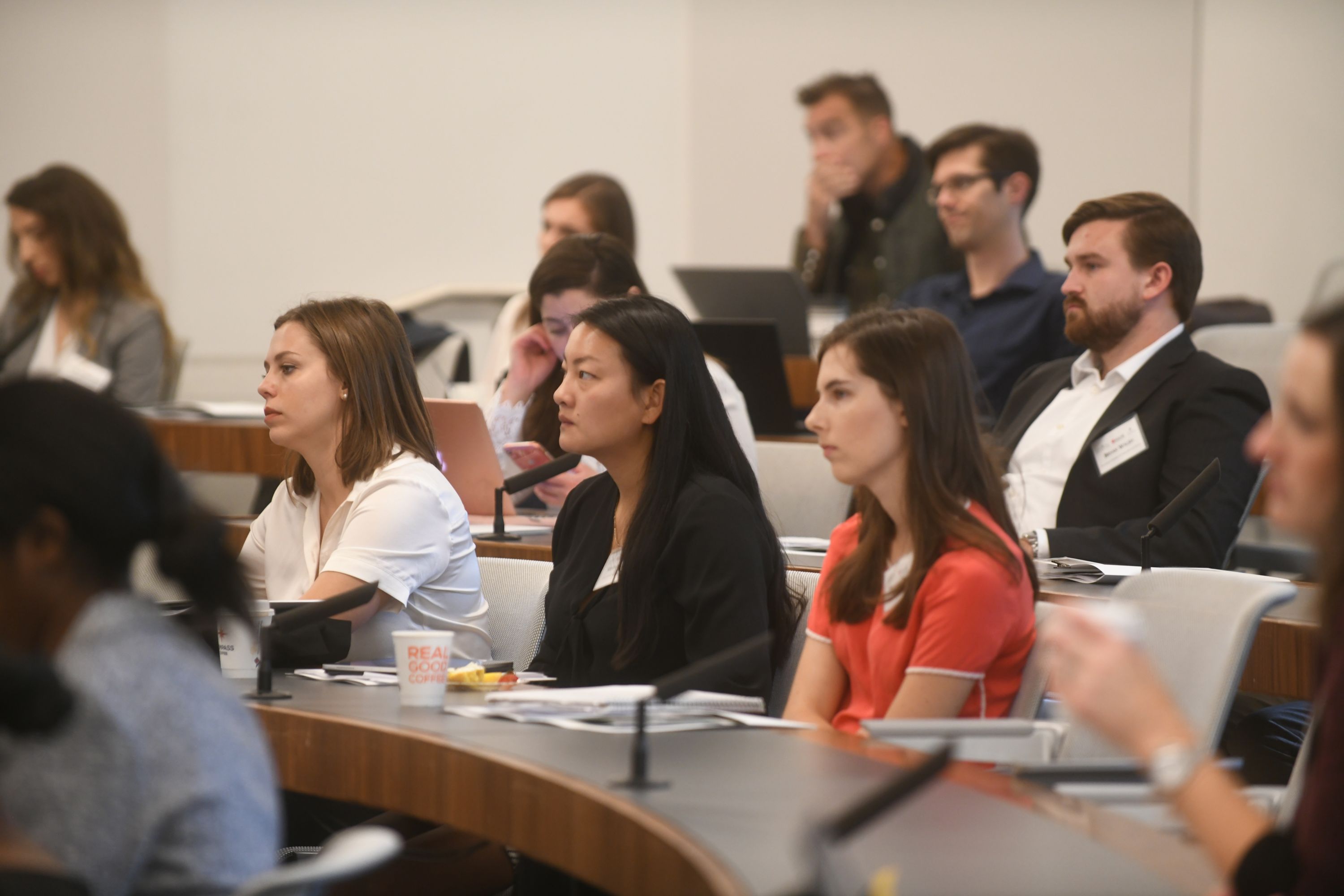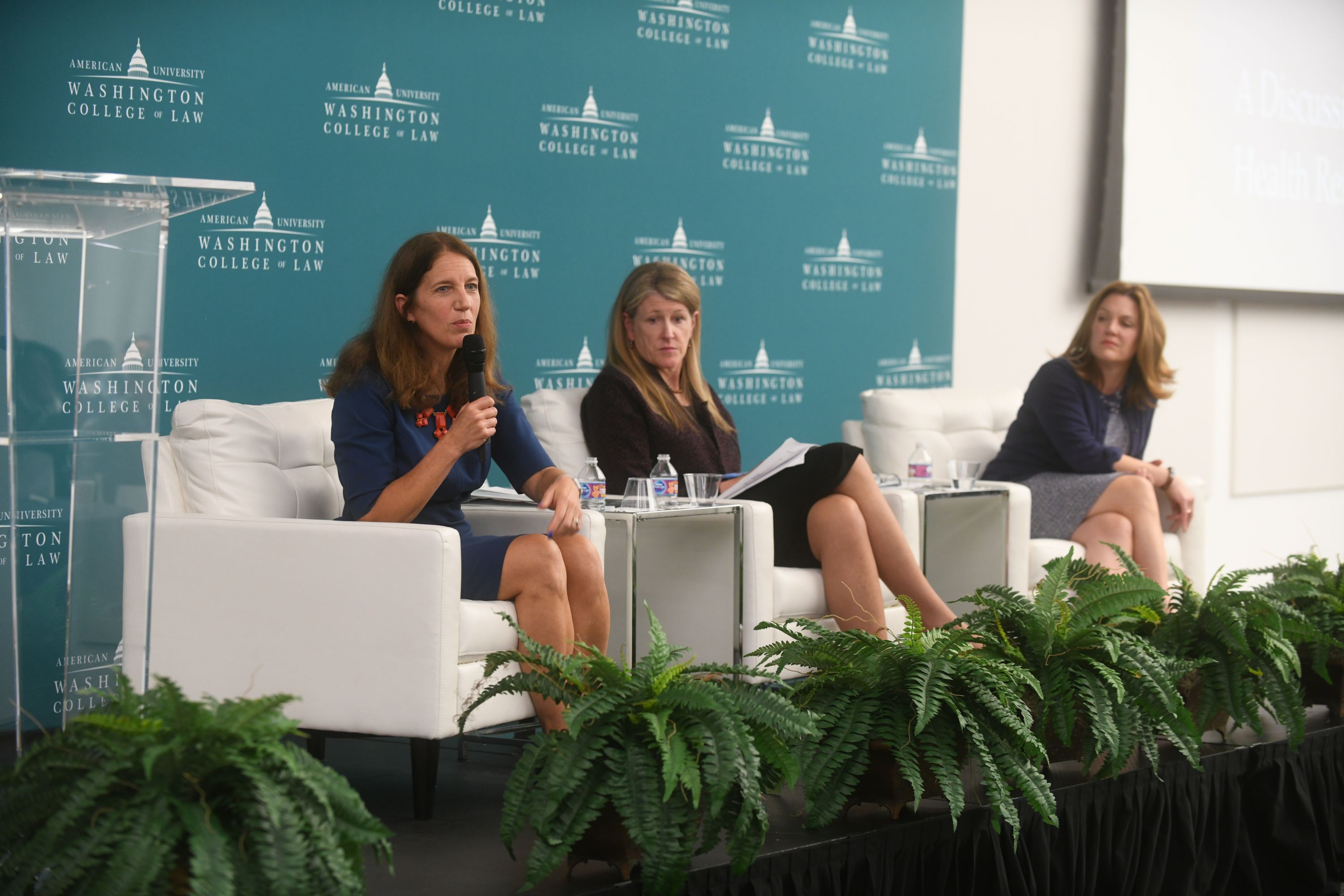AUWCL Hosts Next Steps in Health Reform 2019 Conference
Oct. 14, 2019

American University Washington College of Law’s Health Law and Policy Program, in partnership with American Society of Law, Medicine & Ethics (ASLME) and American University’s School of Public Affairs (SPA), hosted the “Next Steps in Health Reform 2019” conference Thursday, Oct. 10 through Friday, Oct. 11, 2019. AUWCL Professor Lindsay Wiley, director of the Program, serves as president of ASLME.
The two-day conference brought together national leaders in health care law, policy, economics, and administration. Discussion included implementation of the Affordable Care Act (ACA) and other statutes, identifying developments on the horizon, analysis of competing health care plans proposed by the 2020 presidential candidates, and the offering of bold new ideas for balancing cost, access, quality and patient autonomy in the rapidly changing U.S. health care system.

“This conference has become one of the largest gatherings of leading experts, practitioners, scholars of law, medicine, and ethics across North America,” said AUWCL Dean Camille Nelson during her welcoming remarks Thursday. “Whether one believes in incremental versus comprehensive reform in our health care systems, we likely agree that meaningful progress is tethered to the manner in which one views health care in society.”
Over 50 conference speakers were in attendance, including Maine Health and Human Services Commissioner Jeanne Lambrew, Wisconsin Secretary of Health Services Andrea Palm, and former U.S. Secretary of Health and Human Services and American University President Sylvia M. Burwell.
The conference featured 12 separate panels on the most pressing challenges facing health reform, as well as three plenary sessions: “Recent Legal Developments,” “A Discussion with American University President Sylvia Mathews Burwell and State Health Reform Leaders,” and “Health Policy in the 2020 Election.”
The role of health care system reform and what it means to voters in the upcoming election was a theme woven throughout conference discussion.

“We’re an insurance state. We have an insurance broker on every corner in Wisconsin. So this idea of government run health care, Medicare for All, that kind of shift – it just doesn’t sit right with the people that live and spend in the insurance culture,” Palm said. “Candidates need to think about the individual voter experience in a state like Wisconsin, giving access to the things they most need – behavior health benefits, stronger policy around tobacco and vaping, depression and anxiety. That’s where the voter is going to turn.”
Many panelists discussed how it will be the key issue in 2020.
“Americans feel as though they have lost control of their healthcare costs, and blame prescription drug companies and health insurance companies, and they believe the healthcare system is broken. No one, Republican or Democrat, would dispute that.” said Jim Hobart, partner at political research firm Public Opinion Strategies.

“When we asked voters the top three issues for the government to address in May, health care was number one at 42%” said Founding Principal of Garin-Hart-Yang Research Group Fred Yang, adding that in 2018 voter exit polls, health care was also ranked as the number one concern. “In the 2020 election, a lot of people are going to feel like they voted for something to happen in 2018, and the fact that it’s still seen as such a big issue now, seems to suggest they don’t think progress has been made.”
AUWCL launched the Next Steps in Health Reform conference in 2012 and 2015. In 2017, the law school expanded the event in partnership with the ASLME and support from co-sponsor SPA.
“We hosted the first Next Steps in Health Reform conference a few months after the Supreme Court upheld the ACA’s individual mandate and rewrote its expansion of Medicaid eligibility, rendering it optional for states,” Wiley said. “Implementing the ACA and adopting new reforms to fulfill its promises of universal coverage at an affordable cost requires expertise from across professions and academic disciplines. Our goal is to connect policymakers to experts from the legal, public policy, economics, and business administration communities.”